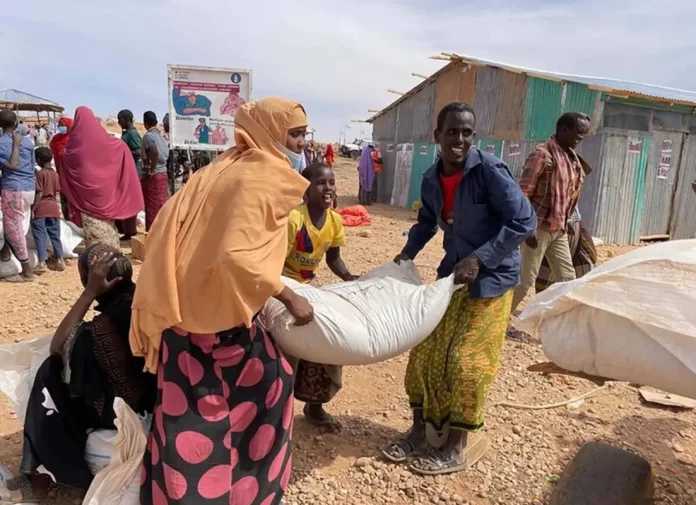Somali Magazine – In a shocking turn of events that has sparked converstion across the international community, the European Union (EU) has temporarily suspended its food aid program in Somalia. This decision follows recent United Nations report that revealed widespread theft and misappropriation of aid supplies in the country.
The UN report, which has been described as a wake-up call for the international community, detailed numerous instances where food aid intended for the most vulnerable populations, including children and the elderly, was being stolen and sold on the black market by those more capable. The systematic scale of the theft has raised serious concerns about the effectiveness of international aid efforts in the region and generally around the world.
In response to these alarming findings, the EU, which has been one of the largest contributors of food aid to Somalia, has decided to halt its food aid program until further notice. This decision was not taken lightly, given that Somalia has been grappling with severe food insecurity due to ongoing adverse weather conditions.
The implications of the EU’s decision are expected to be significant for the people of Somalia, some of whom rely on international aid for survival. The suspension of aid could exacerbate the already dire humanitarian situation in the country. However, the EU has emphasized that this is a temporary measure, and aid will be resumed once adequate measures are put in place to prevent further theft.
The spotlight is now on the UN and other international bodies, who are under pressure to investigate the allegations and implement stricter controls on aid distribution for the sake of those who actually need it. The hope is that these measures will ensure that aid reaches those who need it most and restore confidence in the international aid system.
This incident serves as a reminder of the challenges faced in delivering aid in conflict zones. It underscores the need for greater transparency and accountability in aid distribution to ensure that assistance reaches those who need it most. It also highlights the importance of addressing the root causes of food insecurity, such as conflict and climate change, to create sustainable solutions.
The international community will be watching closely as the situation unfolds, hoping for a swift resolution that ensures aid can continue to reach those in need in Somalia. This incident is a stark reminder of the complex and often fraught nature of international aid, and the need for constant vigilance to ensure that help reaches those who need it most.

